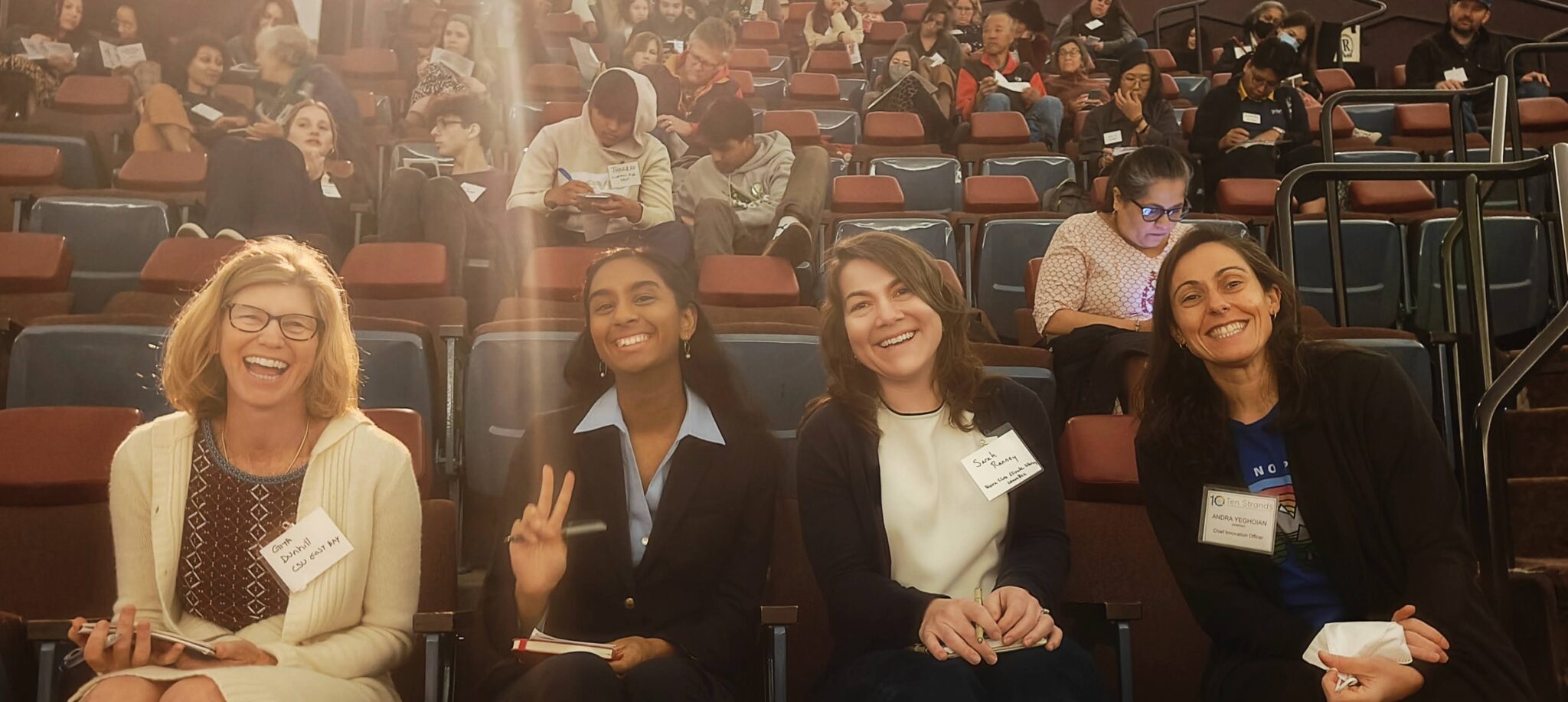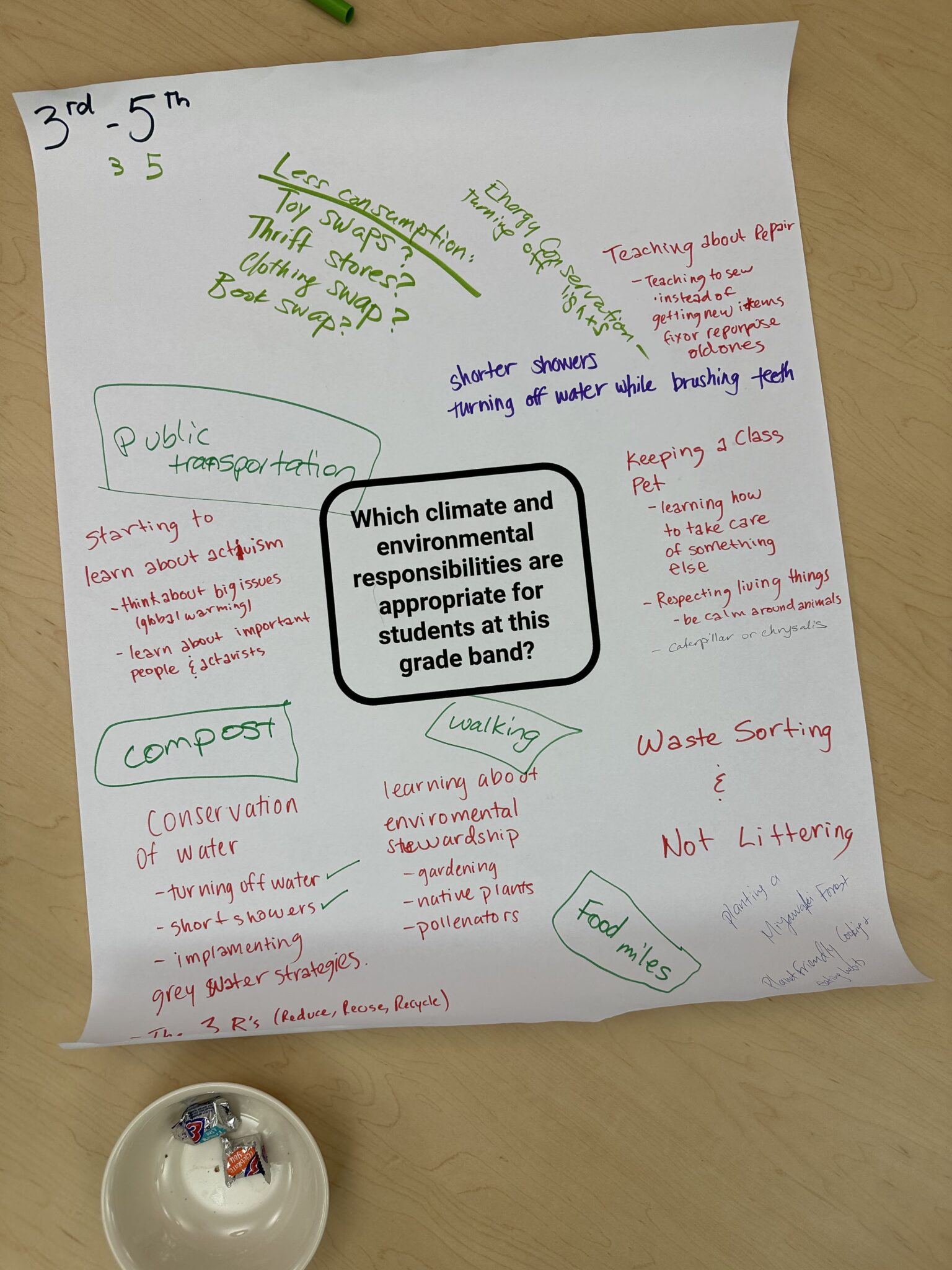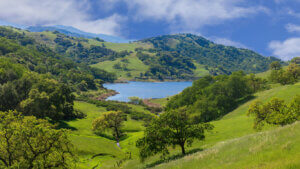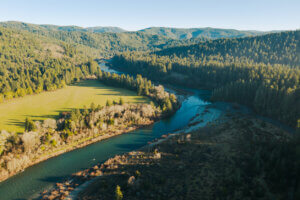Authored by: District Innovation Hub Members: Ellen Mc Clure and Nate Ivy
On Sunday, February 4th, 2024 as representatives from Berkeley, Fremont, and Oakland Unified school districts began setting up for the inaugural Bay Area Climate Exchange scheduled to take place on Monday, February 5th, the National Weather Service Bay Area issued its first ever warning of hurricane force winds over nearby coastal waters. The warning highlighted the growing impacts of climate change and the urgency to do something about it.
Between 2019 and 2022 students concerned about climate change, worked with the Sierra Club and adult allies in their local communities to organize and pass climate literacy resolutions in Oakland (2019), Fremont (2021), Berkeley (2021), and Los Angeles (2022). The resolutions called for an “educational response to the climate emergency” and urged the districts to develop climate literacy plans to educate students in the causes of climate change and potential climate solutions.
The idea for the Bay Area Climate Exchange emerged as CAELI members from Berkeley and Fremont recognized that their parallel efforts to develop climate literacy plans could be greatly accelerated by bringing teachers, student leaders, and community experts together to share best practices, exchange notes, and co-develop lesson plans and action projects. Regional partners like Community Resources for Science, StopWaste, and the Chabot Space and Science Center enthusiastically jumped on board to support the event while nearly 150 teachers, students, board members, and leaders from districts across the Bay Area registered for a seat at the table.
Throughout Sunday afternoon the winds grew stronger, rattling the doors and windows at the Chabot Space and Science Center. And, just as organizers were setting up final touches for the event, the lights went out. High winds and driving rain caused a power outage that knocked out the lights and shut down the fresh water pumps at the hilltop science center. Ironically, the February 5th Bay Area Climate Literacy Exchange would have to be rescheduled due to a severe weather event made worse by the impacts of climate change.

After that February postponement, the first Bay Area Climate Literacy Exchange was rescheduled and able to take place at Chabot Space and Science Center on March 25, 2024. Participants included students, teachers and leaders from nine Bay Area school districts along with partner organizations from throughout the Bay Area. One of the focal questions of the day was, “what does implementing a climate literacy resolution look like?”. Participants attending came with a range of experience on implementing climate literacy, from just getting started to early integration, and even some with some in-depth integration experience. The event was thoughtfully planned with this in mind so that all participants could engage in meaningful conversations and learning around supporting climate literacy in Bay Area school districts.
The event was intentionally structured with multiple ways for participants to learn and engage with each other. The morning started with an incredible keynote session highlighting youth activism, environmental education work at the state level, origins of climate literacy resolutions, and climate science. The keynote session ended by reinforcing the need to root the work in climate science, but also the need for bringing climate stories to all disciplines. The morning session wrapped up with a variety of hands-on climate action workshops, which were a favorite moment for many in attendance. Workshops included climate action projects, climate justice, climate storytelling, wind turbine and earth’s atmosphere labs, and a “How Green Is Your School?” student activity. The variety of activities really modeled the diverse ways that climate literacy can be incorporated into classroom learning across subjects and grade levels.
The afternoon session was highly collaborative and invited grade level groups to explore the question, “What does climate literacy look like at this grade level?”. It was useful for all participants to think about what meaningful climate education looks like across the grade levels, particularly at the elementary level. Student participation was a valuable part of this session, with students sharing their lived experiences and what they would ideally like to see in climate education. This session fostered deeper connections between participants as they shared their own experiences in the classroom and presented questions and challenges to the group. By the end of the session, each grade level team produced a document that explored the guiding question and will support staff as they grow climate literacy opportunities in their districts.
Though the event was originally planned as professional development for teachers, participants with other roles (students, partner organizations, district leadership) were a big part of the conversation. The overwhelming interest in the event and increased attendance after the need to be rescheduled showed how important it is to create this type of collaborative learning space, and reinforced that school communities are ready to engage more deeply in building climate literacy.

A key theme of the event was the importance of talking about climate and climate literacy, and remembering that: Everyone has a climate story to tell: Silence is not an option. In her keynote address Dr. Gita Dunhill told swashbuckling stories of collecting ice core samples and working with her science colleagues to add to the overwhelming evidence of climate change. She also warned against the trap of only talking about climate in science spaces, and the need to expand climate literacy into the humanities. A workshop on Climate Storytelling helped participants find their climate voice by sharing personal experiences with climate challenges paired with appreciation for the gifts of the natural world. Talking about challenges and solutions from more of a humanities lens can help the work feel less lonely and more optimistic, as one participant noted, “Thank you SO MUCH for such a fantastic event. I felt really energized and happy leaving” today. The challenge of climate change is too big for science alone to tackle and it is too central to the lived experience of people across the planet to avoid making sense of it together and through multiple disciplines.
CAELI played a critical role in the origins, implementation, and success of the Bay Area Climate Literacy Exchange, showing that CAELI is a lever for systematic change. CAELI District Innovation Hub members Nate Ivy and Ellen McClure were key organizers of the event, Andra Yeghoian provided a fantastic keynote address about the state of environmental education in California, and CAELI provided sponsorship, which allowed for people to be fed a sustainably sourced lunch. This event was very impactful for participants, with 97% of participants surveyed indicating they would definitely attend another event like this in the future. In their reflection, one participant shared, “being able to speak with other districts in our grade level was very helpful. It gave me insight into how to approach [our climate literacy] challenges.”
Enthusiasm for regional exchanges and relationship building among local districts is a promising practice that can be scaled across the state, and the good news is that this scaling has already begun, as this Bay Area Climate Literacy Exchange inspired a sister event in Orange County led by CAELI members Gloria Harwood, Tim Baird, and Katie Beck. We look forward to seeing more events like this in the 2024-25 CAELI season.






